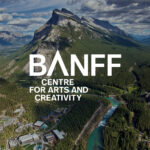Fully funded two weeks Journalism Residency in Canada 2022:
Application deadline: March 09, 2022.
Status: Applications are open.
Duration: two weeks.
Country: Canada
Benefits: program covers living expenses in Canada for two weeks.
This two-week residency encourages the exploration of new ideas in journalism and experimentation in writing. Designed to challenge and stimulate, the program aims to inspire creative pieces of nonfiction and to assist the writers in their completion. A preeminent space for long-form journalism, this residency emphasizes the strengths of thorough and articulate reporting, distinctive storytelling, and literary devices. Work created in this program has been published in many outlets including The Globe and Mail, The Walrus, and The Atlantic, and pieces have gone on to win National Magazine and National Newspaper Awards.
What does the program offer?
This 13-day residency provides mentorship from faculty members and one-on-one workshopping. Instructors will discuss ideas, experiences, and obstacles that participants may be encountering with their literary journalism. Writers will have time to work on their manuscripts, receive individual consultations with faculty, and participate in group discussions.
Successful applicants will receive 100% scholarship to cover tuition, on-site accommodation, and on-site meals.
Who should apply?
Literary Journalism is designed for writers seeking a professional development opportunity in a community of peers with the guidance of an experienced writer/editor, as each participant prepares a long form piece (3,000 – 5,000 words).
Participants should be experienced professionals, active in the diversified fields of writing, including print or electronic media. This program is open to fiction and non-fiction writers, journalists, freelance critics or curators, artists, and academics, with an emphasis on those who can write for a lay audience with logic, vigour, and charm—and those who have a portfolio to prove it.
We welcome writers from all backgrounds, and all gender identities and expressions.
Please note: This program is run in English and participants are accepted for an English-language essay.
Accepted participants are expected to be on-site for the duration of the program.




